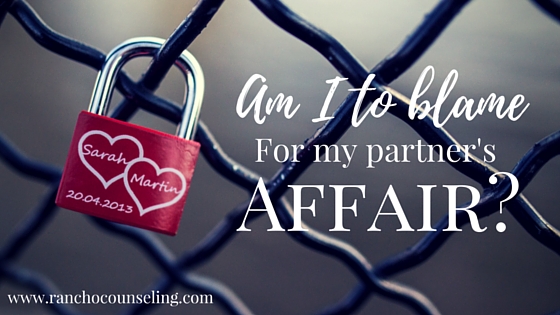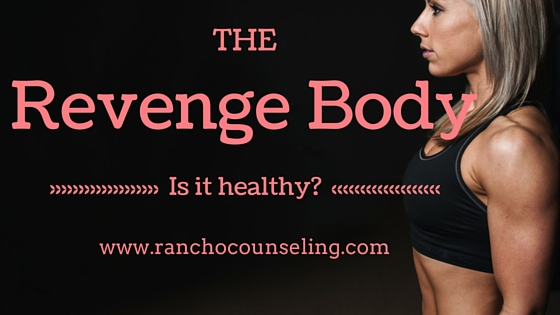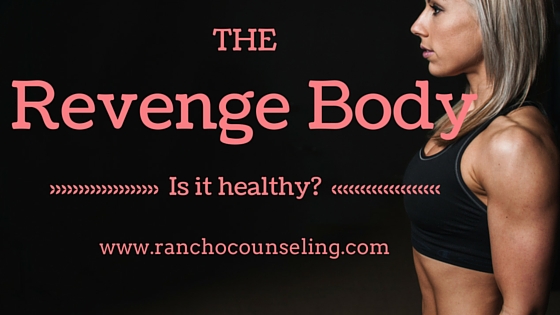
Blog
5 Things that come between Couples And Cause Affairs
While we can’t affair-proof our relationships, we can invest in them enough that an affair will be much less likely. Here are 5 things that commonly come between couples and have the ability to cause an affair:
I’ve sat across from enough couples trying to repair their marriages after an affair to know that they don’t just happen. There are some telltale signs that a relationship is ripe for an affair. No one thinks it will happen to them, and its easy to see in hindsight that there were in fact signals leading up to it.
While we can’t affair-proof our relationships, we can invest in them enough that an affair will be much less likely.
Here are 5 things that commonly come between couples and have the ability to cause an affair:
1. Time
In the beginning of a relationship things are usually the best they will be. Couples have plenty of time to enjoy one another, they spend a significant amount of time together, they talk openly, and they share hobbies and interests that keep them connected.
As time passes two becomes three and then four, and the focus shifts from the couple to the family. Responsibilities increase, stresses increase, and time and energy decrease. The lack of time and energy once used towards one another dwindles, and a lack of connection that once kept the relationship fresh, diminishes.
2. Caring for Children
Children are one of the most amazing gifts, and in order to be a good parent it takes time, energy, and a great amount of effort. Sometimes that effort and energy comes at the detriment of the marital relationship.
I often see parents killing themselves to put their kids in all the right sports and extracurricular activities, running them around like an über driver on a Friday night. They angst over participation in activities because “they look good on college admission essays,” or even preschool applications.
All that running around, over-committing, and overextending leads to exhaustion and under-commitment to the marital relationship. Who has the energy for intimate conversation or sex after running on empty with kids all day?
When children leave the nest I often have couples coming into my office wondering who the person is sitting next to them. After years of committing to their children, they forget they were once committed to one another, and lack the intimacy that comes with regular connection.
3. Career
Work/life balance is often elusive. As couples work to provide the biggest and the best for their children, it’s easy to continually strive for the next promotion, which usually comes with an increase in responsibility, and longer hours.
Working long hours can lead to a lack of connection at home. Often times, inter-office friendships can spark as a result of all the time spent on the job, and although they may seem innocent at first, feelings of loneliness can surface and be a cause for infidelity.
4. Outside Hobbies and Interests
I tend to be a big cheerleader when it comes to both partners having interests of their own. I encourage the individuality that comes with doing something that doesn’t include your partner or kids because I think it makes us more whole. It’s what we bring back to the relationship and talk about, and it’s what makes us unique.
However, there is a fine line, and balance is always key. When there’s no regular connection in the relationship, and date nights aren’t happening nearly as often as the kid’s play-dates, it’s difficult to justify an out of town fishing trip with the guys, or a daily 2-hour gym routine.
5. Difficult life-transitions
The transition into parenthood, a career change, caring for an aging parent, a move to a new state - all of these are examples of life-transitions. When things change in a big way, there are lots of feelings that go along with these transitions.
When the feelings are not outwardly expressed in the relationship, and one partner feels as thought they aren’t able to confide in the other, it can cause a wedge that leads to loneliness.
What all 5 of the things I’ve listed have in common are their ability to cause disconnection and loneliness. Loneliness and disconnection often lead to vulnerability, and vulnerability has the ability to lead to an affair if the right person comes around at the right time.
The bottom line is that connection is key.
If you’re connecting with your partner, sharing intimate moments with one another, and each of you feels valued and satisfied with your relationship, any of the above listed things can come into your lives. While they may be challenging, the strength you feel from the friendship and connection with your partner will help push you through the storm together.
Find ways to sneak 15 minutes out of your day to be alone.
Create routines that encompass connection. Make it a habit to connect through text or email throughout the day, and sit together after the kids go to bed and talk before getting into bed.
If you’re having trouble finding the connection you need with your partner, I’m just a phone call or email away. My passion is helping couples find their stride and connection with one another, so don’t hesitate to reach out! Let’s set up a quick phone consultation, and I’ll be happy to discuss ways to connect more with your partner (909) 226-6124.
The Power of Mantras and Positive Affirmations
Choosing a mantra and practicing positive affirmations is incredibly beneficial. We all have automatic thoughts that pop up in our minds, it’s like an inner-monologue and we tell ourselves things about ourselves all the time. If you listen, you might start to notice that the things you tell yourself may not be overly positive or even nice.
I recently had a mom’s night out and my gal pals and I went to a chalk art class. We thought it would be fun to get out together, drink some wine, and be a little artsy. What I didn’t know when I signed up for said class was that the focus was on mantras.
What is a mantra?
It’s a little saying that you tell yourself, something that you live by, and many times in meditation and yoga practices people repeat a mantra to themselves over and over. It reminds you of something that’s important and repeating it during meditation seals it in your mind as something that you can always go back to.
I’ve worked hard to incorporate a meditation practice in my life, committing to 10 minutes a day and I’ve seen vast improvements in my anxiety levels and ability to stay Zen through life’s little frustrations.
I’ve done a mantra practice where I repeat one word, and usually I just use the word, Love. Saying it over and over for 10 minutes puts me in a place where I am more loving, and where I seek throughout my day to spread love to others even in moments of pure frustration.
In my chalk-art class, I was tasked with finding a mantra that really resonated with me and I chose this one:
Choosing a mantra and practicing positive affirmations is incredibly beneficial.
We all have automatic thoughts that pop up in our minds, it’s like an inner-monologue and we tell ourselves things about ourselves all the time.
If you listen, you might start to notice that the things you tell yourself may not be overly positive or even nice.
Identifying your automatic thoughts is half the battle. Struggling in your romantic relationship can bring up a whole slew of negativity in yourself. But creating a mantra can help you cope with anger and frustration.
Those times you feel sad, depressed, and like you just don’t want to push forward, take a moment to listen to what you’re telling yourself. Are you saying things like, “Of course you deserve what’s happening in this relationship.” Or, “This is never going to work, we are just too different.” Or maybe even, “Life sucks, this relationship sucks, and I’m going to be alone forever.”
Take a moment and listen.
The mind is an incredibly powerful thing, and once you recognize those thoughts, you can start to replace them with a positive affirmation.
A positive affirmation is much like a mantra. It’s something you tell yourself and repeat when times get tough. It can be something simple like, “I am bright, I am beautiful, and I am brilliant.” I suggest that you try something that may be a stretch at the moment, something that you don’t fully believe, because repeating it will help make it reality.
Saying things like, “I deserve positivity in my life and in my relationship.” Or, “I am worthy of love.” “I have a wonderful relationship, full of love and respect.”
Creating a mantra or positive affirmation that is said in the present tense makes it into something you are claiming right here, and right now. It’s the same reason why goal-setting is so powerful, and why those who set goals are shown to have more success. It creates visualization in our minds of what those words mean, and we can then close the gap and become the words.
If this sounds a little woo-woo to you, I get it, but it doesn’t mean that there isn’t something to it.
Take some time today to recognize what you’re saying to yourself. Flip those negative thoughts on their head and create a mantra or positive affirmation and replace those negative thoughts with it and then reap the benefits of an improved mood and feelings towards yourself.
If this seems like a really big push for you because you are healing after a heartbreak, or going through a particularly tough time in your relationship, I'd love for you to get on my interest list for my upcoming e-course that will focus on helping women learn the 4 phases to healing and becoming the best version of themselves. Just click the image to get on the interest list.
I've also got an awesome cheat sheet to help you fid your strengths, create some gratitude, and improve your attitude, and the best part is it's totally free, just click the link below, sign up, and it will be sent right to your inbox!
Am I to blame for my partner’s Affair?
When you discover that your partner has had an affair, it’s common to press rewind on the last year of your life together and look for all the signs you should have seen and things you missed. The times they were out late and didn’t invite you, the times they were on the phone way too long with their work colleague and you gave them the benefit of the doubt, not wanting to rock the boat.
Hindsight is always 20/20. Always. It’s just too easy to look back on an event and not see the signs, find the flubs, and scrutinize the details that were missed.
When you discover that your partner has had an affair, it’s common to press rewind on the last year of your life together and look for all the signs you should have seen and things you missed. The times they were out late and didn’t invite you, the times they were on the phone way too long with their work colleague and you gave them the benefit of the doubt, not wanting to rock the boat.
When hindsight is 20/20, it’s easy to place blame on yourself for missing the signs, or not acknowledging them or acting on your gut feeling in the moment. But the truth is, relationships are generally built on trust and it isn’t foolish to trust someone you love and are committed to.
As much as you’d probably like it to, the past can’t be erased, and the future of your relationship is what matters.
Many times I have clients who say things like, “I guess the last year was just one big lie. When we took that romantic vacation, and he said all those wonderful things to me, it must’ve been a lie!”
I beg to differ. Your partner saying they love you, and having an affair are not dependent upon one another. People can compartmentalize things in such a way that makes this possible. While I acknowledge that it’s confusing, I don’t believe that what is said in a moment of romance between you and your partner isn’t true for them. Just as what’s happening for them in the moments they share with someone they are having an affair with are also very real.
What you do in the aftermath of an affair is what matters most. How you handle and set new boundaries for your partner moving forward is where you can take charge, and ask for what you need.
I have seen clients that feel as though it is now their duty to punish their partner at all costs after discovering their affair. They tell their kids, they tell their friends, their family, and anyone else who will listen in an attempt to get their partner to feel shame for their transgressions.
When this happens, it creates a space that is no longer safe. Trust is one of the most difficult things to rebuild after infidelity, but when the injured partner creates a space of punishment at every corner, things can truly backfire and this often sends the straying partner back into the arms of the other.
So while you are not to blame for your partner straying in the first place, it is your responsibility to create a space and relationship after the affair where communication is open, and you are both able to be authentic as you push towards creating a new normal.
Looking back on the signs that you missed won’t do a lot of good. What will be beneficial is to identify your responsibility and contributions towards the rocky patch in your relationship that lead to your partner’s affair.
Did you stop communicating? Did you put your job ahead of your relationship? Did you stop nurturing the friendship between you and your partner? Once you can identify your role, you will have a good place to start the healing process.
You can only control yourself, and you can only work on changing yourself in the aftermath of an affair. You can change how you relate to your partner, how you communicate with them, and how you show up in your relationship, but without looking at yourself and really taking an inventory of what you need to change, there is no starting point.
Starting over can be a challenge, whether you’re starting over after an affair, or starting over completely, I’d like to help with the launch of my new e-course, The Starting Over Series. To get on the interest list and to receive more details about this at-home course that will be launching in the very near future, click here.
The Revenge Body: Is it healthy?
The “Revenge Body” is apparently a thing now that Khloe Kardashian has coined it and turned it into a new reality show. It’s quickly becoming a hot topic among those healing after heartbreak, but is it really that healthy?
The “Revenge Body” is apparently a thing now that Khloe Kardashian has coined it and turned it into a new reality show. It’s quickly becoming a hot topic among those healing after heartbreak, but is it really that healthy?
Exercise in and of itself is great, we all know that we should be getting at least 30 minutes every day, and that we should accompany it with a healthy diet and good sleep. If you’re suffering after a break up though, those things can be difficult to come by. You might find yourself lacking in the sleep department, eating as a means of comfort, and lacking the motivation to get you out of bed and into the gym.
Once you do pick yourself up and begin to heal a bit, hitting the gym and getting your sweat on can make you feel amazing. It creates those wonderful endorphins that send the “happy” signals to our brains, and the strength gained over time can be wonderfully empowering, but just like anything, it has to be done in moderation.
If you’re hitting the treadmill to blow off steam, create a sense of empowerment, and channel anger over the loss of a relationship, it can be easy to become addicted. The concept of the revenge body goes a little deeper than this though – with technology it isn’t just about improving confidence and weight loss, it’s more about flaunting bods in front of exes in hopes of feeling revenge – and that’s where it becomes a problem.
Over-obsession about body image and the premise that this revenge body is being created with the intention of brandishing it for an ex to ooogle over can set you up for some major disappointment.
If exercise has become an outlet for you, so be it. I’ve seen many clients run their first half-marathons, lose a healthy amount of weight, and reinvent themselves after a break-up, but when it borders on obsession and becomes over-consuming it’s no longer healthy.
Pushing yourself hard in the weight room and fantasizing over your ex’s reaction to your scantily clad Instagram post might fuel your workout, but that mentality quickly fizzles. Unless you are working hard for your own intrinsic motivation, it’s not likely to last, and you won’t necessarily keep it up over the long term.
Uncovering the need for revenge can be even more beneficial in the long run. I always tell my clients, “You can leave your relationship, but you have to take yourself with you.” Many times people think that they can move on with someone else and not have the same issues that caused their last relationship to crumble, but that’s not typically the case.
You can only control yourself, and learning more about who you are, what you want out of life and your relationships, and your contribution to the end of your relationship will give you far more rewards as you move forward than any revenge bod picture ever will.
Hit the gym, take a yoga class, go on a hike, whatever you do, do it because it feels good to you, and nothing else.
If you’re struggling to heal after heartbreak, and would like to learn more about healing in the most positive way, be sure to get on my interest list for The Starting over Series, an e-course I’m developing to help women everywhere heal from heartbreak and become the best version of themselves, so click to sign up below.
More than I'm sorry: Helping your partner heal after infidelity
One of my favorite clinicians in the field of psychology and couples therapy is Esther Perel, and she talks about a very important concept in overcoming infidelity, and it is that if you have been unfaithful to your partner but would like to do the work to keep the relationship together and work to repair things you must hold vigil for your relationship. What does this mean?
Infidelity can rock your relationship to the core. It brings out so many things and what’s amazing is that some of those things have the ability to make it stronger. After infidelity, many couples who decide to stay together find themselves talking more, sharing their needs more, and making their feelings and emotions known like never before.
As I’ve talked about before, when there has been infidelity and it’s been decided by the couple that they want to start the healing process, each partner needs to play a role in this. It isn't just the partner who has strayed's responsibility to repair the relationship but he or she does play a major role.
One of my favorite clinicians in the field of psychology and couples therapy is Esther Perel, and she talks about a very important concept in overcoming infidelity, and it is that if you have been unfaithful to your partner but would like to do the work to keep the relationship together, you must hold vigil for your relationship. What does this mean?
Holding vigil means that it is now your responsibility to not only acknowledge the hurt and pain that's been caused by your actions, but also acknowledge triggers for your partner before they happen. Through the healing process and especially if you've been working with a therapist to help get through this difficult time in your relationship, you'll come to understand places and things that trigger your partner to recall your affair.
Triggers are powerful and have the ability to bring an injured partner to their knees, causing them to revert back to square one, and cause all the pain of discovering the affair to come rushing back to them. Triggers can be so many things that just remind an injured partner of the event and of the pain they've felt since.
Holding vigil means that you take the time to bring those triggers up in anticipation of them happening, when it is appropriate. For example, if you know that your partner will be triggered by a certain event like being in a specific place because you had an encounter with the other person there, rather than just preparing yourself for the repercussions of their emotions you need to take action.
If you know that your partner is triggered by you going out of town for work because an affair occurred when you were traveling, as a work trip approaches it is then your responsibility to bring up the trip and acknowledge that you understand how this trip will make your partner feel. Be the one to broach the subject, be the one to reflect the hurt feelings, and be the one to say that you are there to hear about those feelings, and be the one to implement important changes during this trip to create a sense of security for your partner. Will you check in more frequently by phone, Skype, or text? Will you be sharing a room with a work colleague? Will you avoid the bar and drinks after dinner? What will you do instead?
Taking the time and energy to acknowledge your partner’s triggers and emotions, and creating a plan for security will help immensely in the healing process. This isn’t about beating yourself up, or being an emotional punching bag, but it is about taking an extra step to show your partner that you understand their feelings, and that you are there with them working through these difficulties with them.
I’ve had clients who have been injured by an affair tell me how elated they are when their partners do this. They describe it as a feeling of being understood, of being appreciated, and they say it is a relief because they were not the ones who had to bring it up.
They often feel relieved at not having to always ruin a perfectly nice evening with their partner by dredging up their emotions about an upcoming event that may trigger them. They feel understood when their partners acknowledge that a song or a movie makes them feel a flood of negative emotions even before they get that look on their faces. That acknowledgement is powerful and leads to connection and healing.
If you are having trouble holding vigil in your relationship after an affair, consulting a therapist can be an excellent path towards healing. I’d love to hear from you and point you in the right direction, and you may reach me at (909) 226-6124 for a free consultation.













